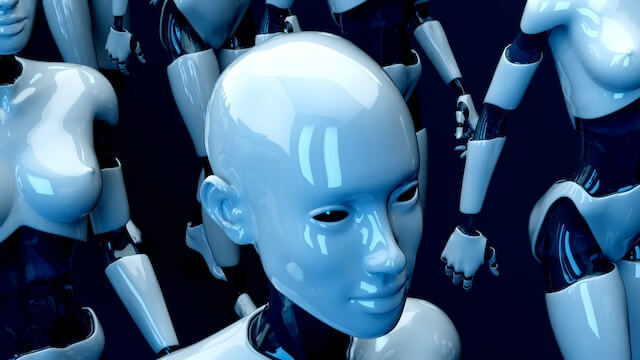What Could the Future of Medical AI Look Like?

In recent years, the field of Artificial Intelligence (AI) has made remarkable strides, revolutionizing various industries. One of the most promising areas of AI application is in the field of medicine. The convergence of cutting-edge technology and healthcare has given rise to Medical AI, a burgeoning field with the potential to transform healthcare delivery, diagnosis, treatment, and research. In this article, we’ll explore the exciting possibilities and speculate on what the future of Medical AI could look like.
The integration of AI into the medical field is set to be transformative. Imagine a world where machines assist healthcare professionals in making faster and more accurate diagnoses, where treatment plans are tailored to each patient’s unique genetic makeup, and where robots perform surgeries with unmatched precision. This future is within reach, thanks to Medical AI.
Enhanced Diagnostics with AI
One of the most immediate applications of Medical AI is in diagnostics. AI algorithms can analyze medical images, such as X-rays and MRIs, with unparalleled accuracy. This not only speeds up the diagnosis process but also reduces the likelihood of human errors.
Personalized Treatment Plans
Medical AI has the potential to revolutionize treatment plans. By considering a patient’s genetic data, medical history, and lifestyle, AI can suggest personalized treatment options that are more effective and have fewer side effects. This tailored approach enhances patient outcomes.
AI-Powered Robotic Surgery
The future of surgery is robotic. AI-powered robots can perform intricate surgeries with precision and steadiness beyond human capabilities. This minimizes the invasiveness of procedures, reduces recovery times, and increases the success rates of surgeries.
Drug Discovery Acceleration
Developing new drugs is a time-consuming and costly process. Medical AI can analyze vast datasets to identify potential drug candidates more quickly. This accelerates drug discovery, making new treatments accessible to patients sooner.
Telemedicine and AI
Telemedicine has gained prominence, especially in remote areas. Medical AI can enhance telemedicine by providing real-time diagnostic support to healthcare providers, bridging the gap between patients and doctors.
Predictive Analytics for Public Health
Medical AI can analyze population health data to predict disease outbreaks and public health trends. This proactive approach allows for better resource allocation and more effective disease prevention strategies.
Ethical Considerations
As Medical AI becomes more prevalent, ethical concerns arise. Issues like data privacy, bias in algorithms, and the role of AI in decision-making need careful consideration and regulation.
Challenges and Hurdles
Despite its potential, Medical AI faces challenges like data quality, interoperability of systems, and the need for extensive training for healthcare professionals.
The Role of Regulation
To ensure the safe and ethical use of Medical AI, regulatory bodies must establish guidelines and standards for its implementation.
AI in Medical Education
Medical AI can enhance medical education by providing students with access to a vast repository of medical knowledge and simulated learning experiences.
Patient Data Security
Protecting patient data is paramount. Robust cybersecurity measures are essential to safeguard sensitive medical information.
Global Impact of Medical AI
Medical AI has the potential to improve healthcare access and outcomes worldwide, bridging healthcare disparities.
The Future of Medical AI: A Vision
The future of Medical AI is bright. It envisions a world where healthcare is more precise, accessible, and efficient, ultimately leading to healthier lives for all.
Conclusion: A Healthier Tomorrow with AI
In conclusion, the future of Medical AI holds great promise. As we navigate the complexities and challenges, we must keep the focus on using AI to enhance human health, improve patient care, and drive medical advancements. The future is here, and it’s time to embrace the potential of Medical AI.




